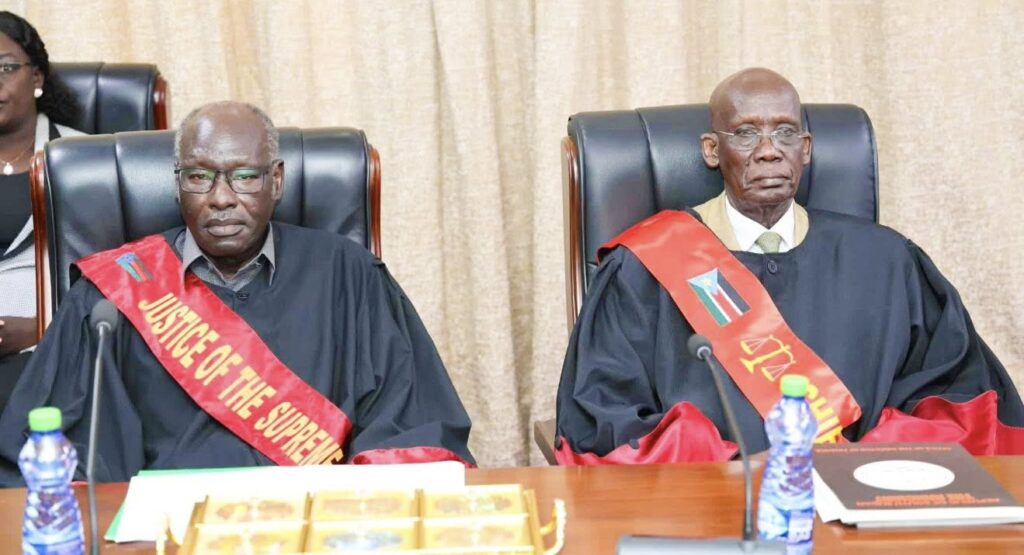
JUBA – The Special Court handling the high-profile “Nasir Incident” trial involving First Vice President Dr Riek Machar and seven senior SPLM/A-IO members has extended its mandate and announced a new schedule to accelerate proceedings.
During the court’s tenth sitting on Wednesday at Freedom Hall in Juba, Presiding Judge Dr James Alala Deng confirmed that the court’s jurisdiction had been renewed “until the completion of the trial.”
The decision follows a directive from the Chief Justice, Dr Benjamin Baak Deng, responding to a defence motion filed earlier this week that challenged the court’s temporal jurisdiction and legality.
The Wednesday’s session also saw the prosecution tender eight physical exhibits as part of its evidence against the accused SPLM/A-IO officials. These included several mobile phones, firearms, and other personal items allegedly seized during the arrests of the accused between March and April.
Among the items presented were mobile phones belonging to Puot Kang Chol, the Minister of Petroleum and prime accused in the ongoing trial; Lt. Gen. Gabriel Duop Lam; Gatwech Lam Puoch; Brig. Gen. Camilo Gatmai Kel Gatwech; Mr Mam Pal Duop; Mr Dominic Gatgok Riek; and 1st Lt. Mading Yak Riak. The prosecution also tendered three firearms allegedly linked to Brig. Gen. Camilo Gatmai.
However, the defence team reportedly objected to the admission of all the exhibits, describing the seizures as unconstitutional and procedurally flawed.
They argued that the confiscation of mobile phones and firearms violated Article 22 of the Transitional Constitution, which guarantees the right to privacy, and that the searches were conducted without warrants issued by a competent court or the Public Prosecution Service.
Defence lawyers further claimed that the seizures breached Articles 107 and 108 of the Criminal Procedure Act, 2008, and that the devices—kept in the custody of the National Security Service (NSS) since the arrests—may have been tampered with, given the agency’s dual role as complainant and enforcer.
“The failure to present the seized devices to the accused during the investigation phase, coupled with their prolonged retention by the NSS, raises legitimate fears of manipulation—especially in an era of advanced Artificial Intelligence,” one defence lawyer told the court.
Despite the objections, Judge Alala admitted the exhibits provisionally and directed the prosecution to tender its final exhibit at the next session scheduled for Friday, October 17.
The case, which has drawn regional attention, centres on the Nasir Incident, which led to the killing of the South Sudan People’s Defence Forces (SSPDF) commander, Lt. Gen. Majur Dak and over 200 soldiers in Upper Nile in March 2025, by the White Army with alleged support from the detained officials.
The renewed mandate and intensified schedule signal the court’s intention to fast-track the protracted proceedings, which are now entering a crucial evidentiary phase and test the court’s ability to deliver justice in a trial already marked by legal flaws, according to the SPLM/A-IO.








